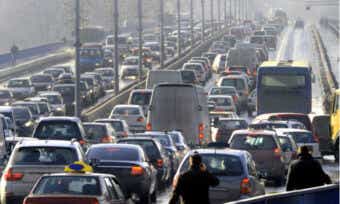Compare car theft insurance
The below table shows car insurance policies with theft cover from our Online Partners.

Instantly compare 60+ Canstar expert rated policies based on the inputs below
24/7 Phone & Online Claims.
Budget Direct - Insurance Solved.
Increasing Your Basic Excess (Within A Given Range)*
Lodge A Claim Online 24/7
• Flexible monthly policies with no exit fees
• Lodge a claim online 24/7
Showing 6 of 51 results
To see more results adjust the filters above
Unsure of a term in the above table? View glossary
The initial results in the table above are sorted by Star Rating (High-Low) , then Provider Name (Alphabetical) . Additional filters may have been applied, see top of table for details.
SPONSORED
-
New Car Replacement within the First Two Years. T&Cs apply
-
Feel confident you’re covered for theft.
-
24/7 Roadside Assist included in comprehensive. Exclusions, limits, T&C’s Apply.
-
Never worry with accidental damage included.
-
Drive happy knowing your car’s covered against storm, hail and flood damage.
About car theft insurance
For many Aussies, cars are an important part of daily life, whether we’re driving to work, doing the school run or embarking on a holiday road trip. Losing your car to theft can be a stressful experience – and potentially a costly one. If you’re contemplating car theft insurance, then it’s important to take out the right kind of cover.
Can you claim insurance if your car is stolen?
Yes, you can make an insurance claim if your car is stolen, provided that you have an insurance policy that covers theft. There are four main types of car insurance, and they don’t all cover car theft:
Car insurance with theft cover:
- Comprehensive car insurance is generally regarded as the gold standard of car cover as it offers the highest level of protection. Comprehensive car cover usually provides protection for a variety of scenarios including if your car is stolen. You may also be able to have a direct say in the car theft insurance payout by choosing between insuring your car for market value or an agreed value. You can use the table at the top of this page to compare providers offering comprehensive car insurance policies that includes theft cover. Change the filters to suit your requirements.
- Third Party Fire & Theft car insurance will typically protect you if your car is stolen, while also offering cover if your vehicle is damaged by fire or if you damage someone else’s property. However, it is important to read the fine print of this type of cover to understand exactly how much of a payout you’ll receive if your car is stolen. The car theft insurance payout can be limited to a maximum amount. If your car is financed by a car loan, you could be left substantially out of pocket if you owe more than the maximum payout.
Car insurance without theft cover:
- Compulsory Third Party (CTP) insurance only provides financial protection for anyone who may be injured or killed in a crash involving your car. It does not cover damage to, or the theft of, your car.
- Third party property insurance offers protection if you damage someone else’s property such as their home or car.
Frequently Asked Questions about Car Theft Insurance
Latest in car insurance
Canstar Star Ratings and Awards
Looking for an award-winning product or to switch providers or brands? Canstar rates products based on price and features in our Star Ratings and Awards. Our expert Research team shares insights about which products offer 5-Star value and which providers offer outstanding value overall. We also reveal which providers have the most satisfied customers in our dedicated Customer Satisfaction Awards.
Explore more Car Insurance:
Car insurance with roadside assistance
Car insurance in NSW
Car insurance in South Australia (SA)
Comprehensive car insurance for seniors and pensioners
Car insurance options
Youi Car Insurance
Bingle Car Insurance
Huddle Car Insurance
Insurance with rental car hire after an accident (if you’re not at fault)
Budget Direct Car Insurance
Multi-policy discounts for car insurance
Car insurance for good drivers
About our car insurance experts
Michael Lund, Former Senior Finance Journalist

Joshua Sale, Group Manager, Research & Ratings

As Canstar’s Ratings Manager, Josh Sale is responsible for the methodology and delivery of Canstar’s Car Insurance Star Ratings and Awards. With tertiary qualifications in economics and finance, Josh has worked behind the scenes for the last five years to develop Star Ratings and Awards that help connect consumers with the right product for them.
Josh is passionate about helping consumers get hands-on with their finances. Josh has been interviewed by media outlets such as the Australian Financial Review, news.com.au and Money Magazine.
You can follow Josh on LinkedIn, and Canstar on Twitter and Facebook.
Thanks for visiting Canstar, Australia’s biggest financial comparison site*
Important information
For those that love the detail
This advice is general and has not taken into account your objectives, financial situation or needs. Consider whether this advice is right for you.














